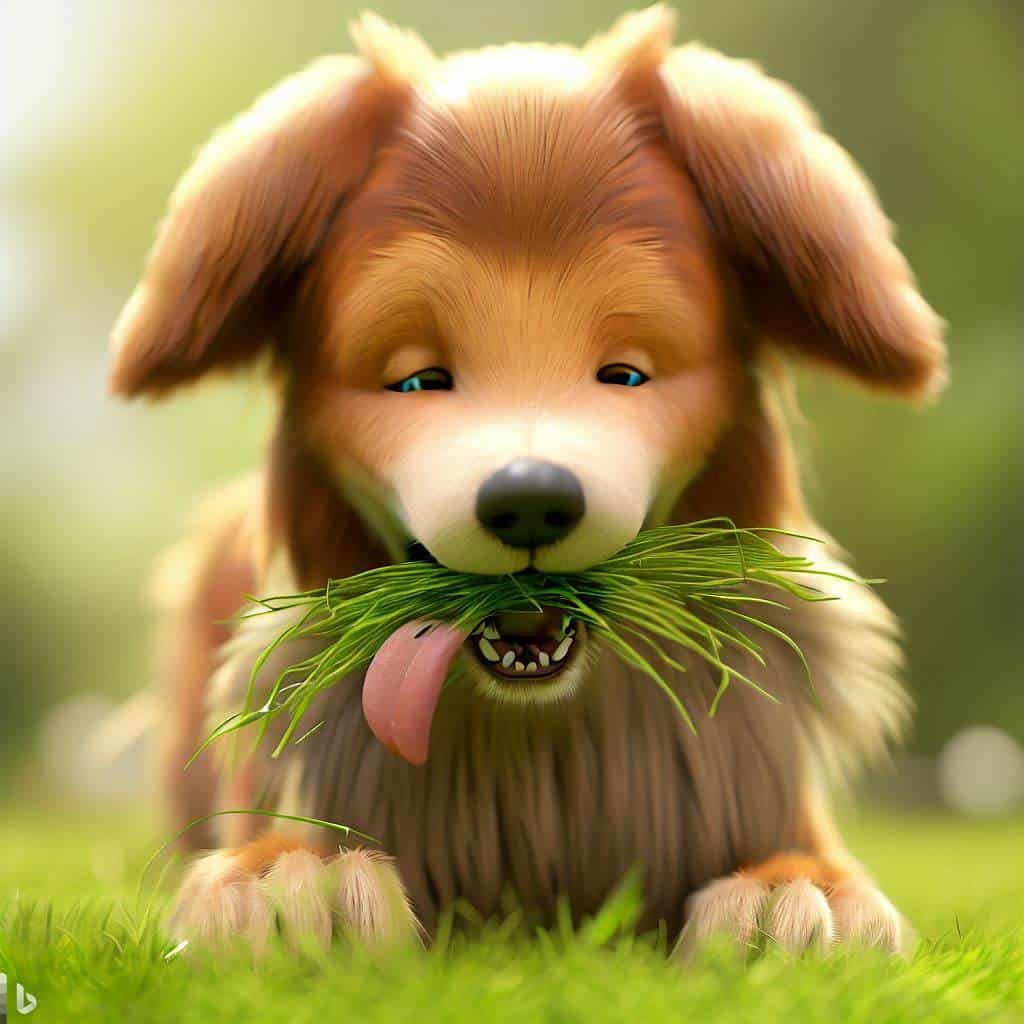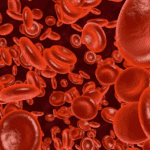If you are a dog owner, you might have observed that your four-legged companion sometimes eats grass while playing outside. This behavior can be confusing and even concerning for some pet owners, leading to various myths and misconceptions about why dogs eat grass. In this article, we will explore the truth behind why dogs eat grass, debunking common myths and shedding light on this mysterious behavior.
Introduction
Dogs are omnivores and enjoy a varied diet consisting of both meat and plants. However, some dogs may have a particular affinity for grass, causing them to seek it out and consume it. While grass-eating is a common behavior in dogs, there are many myths and misconceptions surrounding why they do it.
Explanation of Why Dogs Eat Grass
Dogs have been known to eat grass for a variety of reasons, and the behavior is not necessarily a cause for concern. One of the most common reasons for grass eating is that dogs enjoy the texture and taste of grass. Some dogs may also eat grass as a way to supplement their diet with additional fiber or to induce vomiting. Others may do it out of boredom or a lack of mental stimulation.
Understanding Why Dogs Eat Grass
Understanding why dogs eat grass is essential for pet owners to provide their furry friends with proper care. While eating grass is generally harmless, it can be an indicator of an underlying health issue or nutritional deficiency. Additionally, it is important for owners to know when to seek veterinary attention if their dog’s grass-eating behavior becomes excessive or leads to health problems.
Overview of the Article
In this article, we will debunk some of the most common myths surrounding why dogs eat grass. We will explore the following topics:
Myth 1: Dogs Eat Grass When They Are Unwell
Myth 2: Dogs Eat Grass to Induce Vomiting
Myth 3: Dogs Eat Grass Because They Have a Nutritional Deficiency
Myth 4: Dogs Eat Grass Because They Are Bored
Myth 5: Dogs Eat Grass Because They Like the Taste
Myth 6: Eating Grass is Harmful to Dogs
We will also discuss ways to prevent dogs from eating grass and offer safe alternatives for dogs to chew on.
Myth 1: Dogs Eat Grass When They Are Unwell
One of the most common myths about dogs eating grass is that they do it when they are feeling sick. Some people believe that eating grass can help dogs alleviate digestive issues or other health problems. However, studies have shown that this is not necessarily true.
Explanation of the Myth
The myth that dogs eat grass when they are sick is rooted in the idea that grass contains essential nutrients that can help dogs heal. However, there is little evidence to support this claim. While grass may contain some vitamins and minerals, it is not a cure-all for illness or digestive issues.
Studies Debunking the Myth
Several studies have been conducted to explore the link between grass eating and illness in dogs. One study found that only 8% of dogs vomited after eating grass, and less than 25% showed signs of illness before eating grass. Another study found that grass eating was not linked to gastrointestinal problems in dogs.
Alternative Reasons Why Dogs Eat Grass
While eating grass may not be a direct response to feeling sick, there are other reasons why dogs may engage in this behavior. For example, dogs may eat grass to alleviate boredom, or they may simply enjoy the taste and texture of grass.

Myth 2: Dogs Eat Grass to Induce Vomiting
One of the most common misconceptions about dogs eating grass is that they do it to induce vomiting. While it is true that some dogs will vomit after eating grass, it is not the primary reason they do so. In fact, only a small percentage of dogs that eat grass will vomit.
Explanation of the myth:
Another common myth about why dogs eat grass is that they do it to induce vomiting. Many pet owners believe that when dogs eat grass, it is because they are feeling unwell, and they are trying to make themselves vomit. This idea may stem from the fact that dogs sometimes eat grass and then throw it up later. However, the notion that dogs eat grass to vomit is not entirely accurate.
Studies debunking the myth:
In reality, dogs may vomit after eating grass, but it is not a guarantee. A study conducted in 2008 by the University of California, Davis, found that only about 25% of dogs vomited after eating grass. The study also found that less than 10% of dogs showed signs of illness before eating grass.
The study concluded that dogs do not eat grass because they are sick or need to vomit. Instead, the researchers suggested that dogs may eat grass as a form of self-medication to relieve gastrointestinal upset or discomfort.
Risks of allowing a dog to eat grass to induce vomiting:
If a dog is eating grass to induce vomiting, there are potential risks. Grass can contain pesticides, herbicides, and other chemicals that can be harmful to dogs. Additionally, if the grass is treated with fertilizers, it can cause an upset stomach or even be poisonous to dogs.
If a dog ingests a large amount of grass, it can also cause a blockage in its digestive system. Consuming grass can result in adverse effects for dogs, including but not limited to throwing up, experiencing an upset stomach, and feeling abdominal discomfort. In severe cases, it may require surgery to remove the blockage.
Owners should also be aware that if a dog is vomiting frequently, it can lead to dehydration and electrolyte imbalances, which can be dangerous for their health.
While it is true that dogs may sometimes vomit after eating grass, they do not eat grass with the intention of making themselves sick. If your dog is vomiting frequently or exhibiting other signs of illness, it is crucial to consult with your veterinarian to determine the underlying cause and appropriate treatment.
Myth 3: Dogs Eat Grass Because They Have a Nutritional Deficiency
Explanation of the myth:
Another popular myth about dogs eating grass is that they do it because they are deficient in certain nutrients. Some pet owners believe that if their dogs are eating grass, it is a sign that they are not getting enough of a particular nutrient in their diet.
Studies debunking the myth:
However, there is no evidence to support the claim that dogs eat grass because they have a nutritional deficiency. According to a study published in the Journal of Veterinary Behavior, dogs who were fed a balanced and complete diet were just as likely to eat grass as those who were not.
Nutritional requirements of dogs:
Dogs have specific nutritional requirements that can vary depending on their age, breed, and activity level. A balanced and complete diet that provides all of the necessary nutrients, including protein, carbohydrates, fats, vitamins, and minerals, is essential for a dog’s health.
Furthermore, dogs are able to digest and absorb nutrients from their food much more efficiently than humans, meaning that they do not have the same nutritional requirements as humans do. Additionally, dogs have evolved as carnivorous animals and have adapted to consume a primarily meat-based diet.
While it is always important to ensure that your dog is receiving a well-balanced diet, it is unlikely that their grass-eating habit is due to a nutritional deficiency. If you are concerned about your dog’s nutritional needs, it is recommended that you consult with your veterinarian to determine the best diet plan for your furry friend.

Myth 4: Dogs Eat Grass Because They Are Bored
Another common myth about dogs eating grass is that they do so out of boredom. The idea is that dogs who are not mentally stimulated enough will resort to eating grass as a way to entertain themselves. However, there is very little evidence to support this theory.
Explanation of the myth:
The idea that dogs eat grass out of boredom seems to stem from the belief that dogs who are not given enough attention or stimulation will resort to destructive behaviors. This includes chewing on furniture, digging holes in the yard, and, of course, eating grass. While it is true that dogs need mental stimulation to stay healthy and happy, there is little evidence to suggest that boredom is the primary reason why dogs eat grass.
Studies debunking the myth:
One study published in the journal Applied Animal Behaviour Science found that dogs who were given access to toys and puzzles did not eat less grass than dogs who did not have access to these items. This suggests that while mental stimulation is important for dogs, it may not have a significant impact on their grass-eating habits.
Ways to keep dogs mentally stimulated:
While mental stimulation may not be the primary reason why dogs eat grass, it is still essential for their overall health and well-being. Here are some ways to keep your dog mentally stimulated:
- Provide toys and puzzles: Giving your dog toys and puzzles to play with can help keep their mind engaged and prevent boredom.
- Take them on walks: Regular walks provide dogs with mental and physical stimulation and help prevent destructive behaviors.
- Teach them new tricks: Teaching your dog new tricks is an excellent way to challenge their mind and provide mental stimulation.
- Play with them: Spending time playing with your dog is not only fun, but it also provides mental stimulation and helps strengthen the bond between you and your furry friend.
Myth 5: Dogs Eat Grass Because They Like the Taste
Explanation of the myth:
One of the most straightforward explanations for why dogs eat grass is that they simply enjoy the taste. After all, dogs are known for having a keen sense of smell and taste, and many dogs will eat just about anything they find appealing.
Explanation of the myth:
One of the most straightforward explanations for why dogs eat grass is that they simply enjoy the taste. After all, dogs are known for having a keen sense of smell and taste, and many dogs will eat just about anything they find appealing.

Studies debunking the myth:
There is some evidence to suggest that dogs do, in fact, find grass appealing. One study published in the journal Applied Animal Behaviour Science found that dogs were more likely to eat grass that had been previously mowed than grass that had not. This suggests that dogs may find the taste or texture of freshly cut grass particularly appealing.
Theories as to why dogs might find grass appealing:
While there is little research on why dogs might find grass appealing, there are several theories. Some experts believe that dogs may be attracted to the chlorophyll in the grass, which can help mask odors and soothe upset stomachs. Others believe that dogs may simply enjoy the texture of the grass in their mouths.
Myth 6: Eating Grass is Harmful to Dogs
Explanation of the myth:
One of the biggest concerns that dog owners have about their pets eating grass is whether or not it is harmful. Some people believe that eating grass can cause digestive problems, while others worry that dogs may ingest harmful chemicals or parasites along with the grass.
Risks associated with dogs eating grass:
While eating grass is generally considered safe for dogs, there are still some risks associated with the behavior that pet owners should be aware of. One potential risk is that the grass may have been treated with chemicals such as pesticides, herbicides, or fertilizers. These chemicals can be toxic to dogs and may cause vomiting, diarrhea, or other gastrointestinal symptoms.
Another risk of eating grass is that it can cause intestinal blockages if the dog swallows long pieces of grass that are difficult to digest. This can be a serious medical emergency that may require surgery to remove the blockage.
In addition, dogs that eat a lot of grass may be more prone to regurgitation, which is the passive expulsion of food from the stomach. Regurgitation can be a sign of a more serious underlying medical condition, such as gastroesophageal reflux disease or esophageal stricture.
When to Seek Veterinary Attention:
If your dog is eating grass excessively and showing other signs of illness, such as vomiting, diarrhea, lethargy, or loss of appetite, it is important to seek veterinary attention right away. Your veterinarian can perform a physical exam, run diagnostic tests, and provide appropriate treatment to help your dog feel better.

How to Prevent Your Dog from Eating Grass:
While some dogs may naturally be more inclined to eat grass than others, there are several things pet owners can do to help prevent their dogs from eating grass:
- Provide plenty of mental stimulation through exercise, playtime, and training. This can help reduce boredom and prevent your dog from seeking out grass as a form of entertainment.
- Offer safe and appropriate chew toys, such as Kong toys or dental chews, to satisfy your dog’s urge to chew.
- Monitor your dog closely when outside and discourage them from eating grass by using a command such as “leave it” or “no.”
- Consider providing a small amount of fiber-rich vegetables or fruits in your dog’s diet to help satisfy their need for fiber.
- If your dog continues to eat grass despite your efforts to prevent it, consider talking to your veterinarian about possible underlying medical conditions that may be causing the behavior.
Conclusion:
In conclusion, while dogs eating grass may seem like strange behavior to us humans, it is a common and often harmless behavior. There are many reasons why dogs may eat grass, including their need for fiber, mental stimulation, or simply because they like the taste. However, it is important for pet owners to be aware of the potential risks associated with dogs eating grass, including exposure to harmful chemicals, intestinal blockages, and regurgitation. By taking steps to prevent your dog from eating grass and seeking veterinary attention if necessary, you can help ensure that your furry friend stays happy and healthy.
FAQs
Yes, it’s normal for dogs to eat grass, and there are several reasons why they might do so. However, if you’re concerned about your dog’s grass-eating behavior, it’s always best to consult with a vet to rule out any underlying health conditions.
Eating grass can be harmless in most cases, but there are potential risks, including the ingestion of pesticides or other toxic substances.
If your dog is eating an excessive amount of grass, experiencing vomiting or diarrhea, or showing signs of distress after eating grass, it is essential to consult with your veterinarian.
In most cases, it is safe for dogs to eat grass. However, it’s important to monitor their behavior and make sure they aren’t eating grass that has been treated with chemicals or pesticides.
You can prevent your dog from eating grass by providing them with alternative safe chewing options and keeping them mentally stimulated. You can also try to distract them with toys or treats when they try to eat grass.
While eating grass is generally safe for dogs, there are some potential risks, such as consuming grass treated with chemicals or pesticides or ingesting foreign objects. If your dog starts exhibiting symptoms such as vomiting or diarrhea after eating grass, it’s best to consult with a vet.
Also, you may like:
What Can You Give a Dog for Pain Relief? in 2023
7 Best Supplements for Dogs with Arthritis








